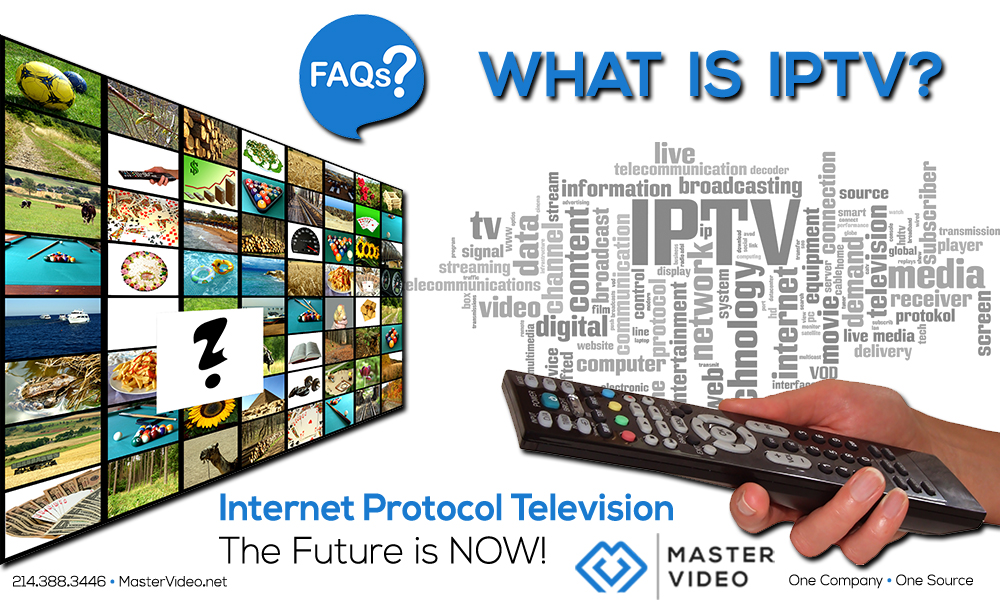Internet Protocol Television: This is Upcoming Major Development in Televisual Entertainment
Lately, our consumption of television has experienced a major transformation. Due to the emergence of technology and the internet, traditional cable and satellite television services are slowly being replaced by innovative solutions that improve viewer experience. At the forefront of this evolution is Internet Protocol Television, which aims to change how we access and enjoy our favorite. As more viewers desire flexibility, variety, and personalized content, IPTV is poised to become the next big thing in televisual entertainment.
The appeal of IPTV lies in its ability to offer on-demand access to an extensive range of content without the restrictions imposed by conventional broadcasting. Viewers can decide what to view, at their convenience, and across various devices, making it an enticing option for a wide-ranging audience. With the shift towards mobile viewing and binge-watching trends, IPTV not only fulfills the demands of modern consumers but also creates new avenues for content creators and distributors alike. As premiumiptvpro.com delve into the growing significance of IPTV, it's evident that this technology is not just a trend, but a look at the future of television.
What does IPTV?
Internet Protocol Television refers to Internet Protocol Television; a technology that enables viewers to access TV shows over the internet rather than through traditional means like cable and satellite. This service utilizes a method of streaming content straight to the viewer’s device, which allows for easy access to a vast array of television programming. Provided that users have an internet connection, they can watch live television, on-demand movies, and various channels.
A primary advantages of IPTV is its flexibility. In contrast to conventional television, IPTV allows viewers to watch content on a wide range of devices, including smart TVs, smartphones, tablets, and computers. This accessibility means that people can view shows at any time and anywhere, breaking free from the constraints of scheduled programming and physical media. The service often comes with advanced features such as pause, rewind, and record, enhancing the overall viewing experience.
Moreover, IPTV offers a diverse selection of content that caters to different tastes and preferences. Users can select from multiple packages that include not only local channels but also international broadcasts, niche content, and streaming services. This customized approach allows users to curate their own viewing experience, making IPTV a compelling choice in the ever-evolving landscape of television.
Advantages of Internet Protocol Television
One of the primary benefits of IPTV is its adaptability and ease of use for viewers. Unlike traditional cable or satellite television, IPTV allows users to access content on multiple devices, including intelligent televisions, tablets, and mobile devices. This means that viewers can view their beloved shows and movies at any time and anywhere, as long as they have an active internet. The capability to pause, go back, or save live television further enhances the viewing experience, making it customized to personal preferences.
Another significant advantage of IPTV is the broad content variety it offers. IPTV providers often include a large library of programming and requested content, spanning numerous genres and languages. This diverse selection ensures that viewers can find programs that cater to their preferences, whether they enjoy live sports, movies, or international programming. Moreover, many IPTV services are regularly updating their offerings, giving subscribers access to the latest entertainment without the need for extra subscriptions or packages.
Lastly, affordability is a crucial factor that makes IPTV an attractive choice for consumers. Generally, IPTV services are less expensive than classic cable packages, which can come with surprise charges and long-term contracts. Users can often choose from different subscription tiers, enabling them to find a package that matches their budget and viewing habits. The absence of expensive equipment rental fees and the flexibility for month-to-month subscriptions add to the appeal, making IPTV a cost-effective choice in the changing landscape of television entertainment.
Future of IPTV
A prospect of IPTV is promising, with tech continuing to advance and enhance the watching experience. In light of internet speeds increase and more people gaining access to high-speed connections, IPTV is poised to emerge as the norm for delivering content. Unlike traditional cable or satellite services, IPTV enables for smooth streaming of content, enabling viewers to watch their preferred shows on various devices. This versatility is attractive to the contemporary consumer who values convenience and accessibility.
In addition, the incorporation of AI and ML into IPTV platforms is set to revolutionize personalized viewing. By analyzing viewing habits and preferences, these technologies can tailor content specifically to the user. This level of personalization enhances user engagement and satisfaction, making IPTV a more compelling option than traditional broadcasting methods. As technologies keep to develop, IPTV will likely become more intuitive and easy to use.
Ultimately, due to the rise of global internet access, IPTV will allow content providers to connect with wider viewers than ever previously. This global access allows for diverse programming that caters to various cultural and regional tastes, creating a richer viewing experience. With competition grows among service providers, consumers can expect innovative features, better pricing models, and an ever-expanding library of content, cementing IPTV's position as the next era of television.
